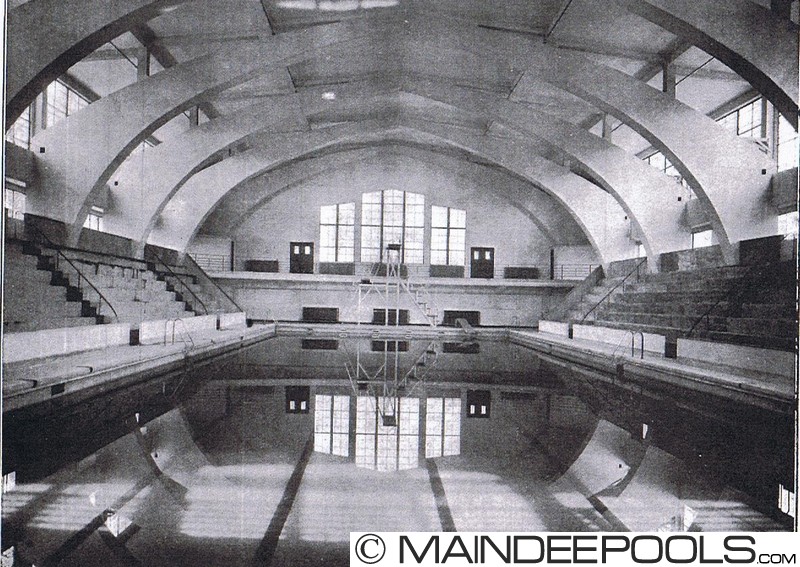CRAZED bathers jumping into the sea and dodging the ice floes on Boxing Day are always superannuated or thereabouts.
It may be something to do with the burial of nerves under ancient deposits of fat or the bloody-mindedness that suffuses through us when we get older.
I believe that the urge to immerse oneself in waters fresh, salted or super-chlorinated is some kind of circle being completed: the waters break and we arrive in the world; we sense our impending departure from it and we need them to cascade over us again.
Bathing, more especially swimming, was once frowned upon in a Britain which looked everywhere for evidence of sin and waywardness, the stricken bather being an emblem of the despairing whose only means of reaching safety was through an appeal to the Almighty.
All that nonsense has gone, even the Victorian shame in entering the sea partly-clothed, though I still cannot summon the courage to change into my bathing costume on the beach by stripping off completely.
Like most institutions which embarrass by their survival, such as libraries, swimming pools have been either demolished or turned into some form of tasteless virtual-reality.
They now come with palm-trees, lapping waves and machine-induced breakers.
In trying to please all, they satisfy no-one.
It’s impossible for a serious swimmer to plough a length of the modern pool because it has no such dimension.
The first time I tried to swim in the Newport Centre pool I beached myself on a tiled strand in six inches of water. Surrounded by curious toddlers, whose aquatic province it was, I felt like Danny the Dolphin panting on a sandy bay somewhere in Cornwall.
The most heinous change is the removal of the diving-board.
For the safety brigade’s sake – the sort that would fell every tree in the land to prevent grubby, adventurous children crashing to their deaths – it has been decreed that diving, an almost mystical whooshing through two elements in exhilarating succession, is incompatible with swimming.
In the old days, before people paddled in swimming pools and when pools anyway were known as ‘baths’, diving was restricted to the diving area. It made sense.
Demolishing the old Stow Hill baths at Newport made no sense.
It was there that the wonderful Bill Cambray taught me, my brother and a friend to swim in an empty pool while his protg, the champion backstroke swimmer John Brockway, zoomed back and forth with his arms imitating a windmill in hurricane.
At today’s fantasyland pools, swimmers can buy all sorts of adulterated muck to eat, but at Stow Hill on a freezing Saturday morning it was Smith’s crisps, cheese rolls and cups of Bovril – a more basic, wholesome sort of muck that was guranteed to put hairs on your chest.
It was at Maindee baths, by comparison an architectutral gem and an ocean to Stow Hill’s pond, that I would repair after a Saturday morning shift at an iron foundry. (I’m a journalist with other lives to my credit, always a help in understanding the world).
One of the company couldn’t swim but was a keen diver.
He would leap gleefully into Maindee’s depths and then struggle to the side with a mongrel paddle, just about preventing almost certain drowning. Talk about a cat with nine lives.
And whatever happened to lidos? With global warming, they should be the in thing. Instead they lie derelict, great empty gouges in the earth that represent an embrace of pleasure both sensuous and elemental.
Jacuzzi, anyone? In the Gwent valleys, we used to break wind in a tin bath.

